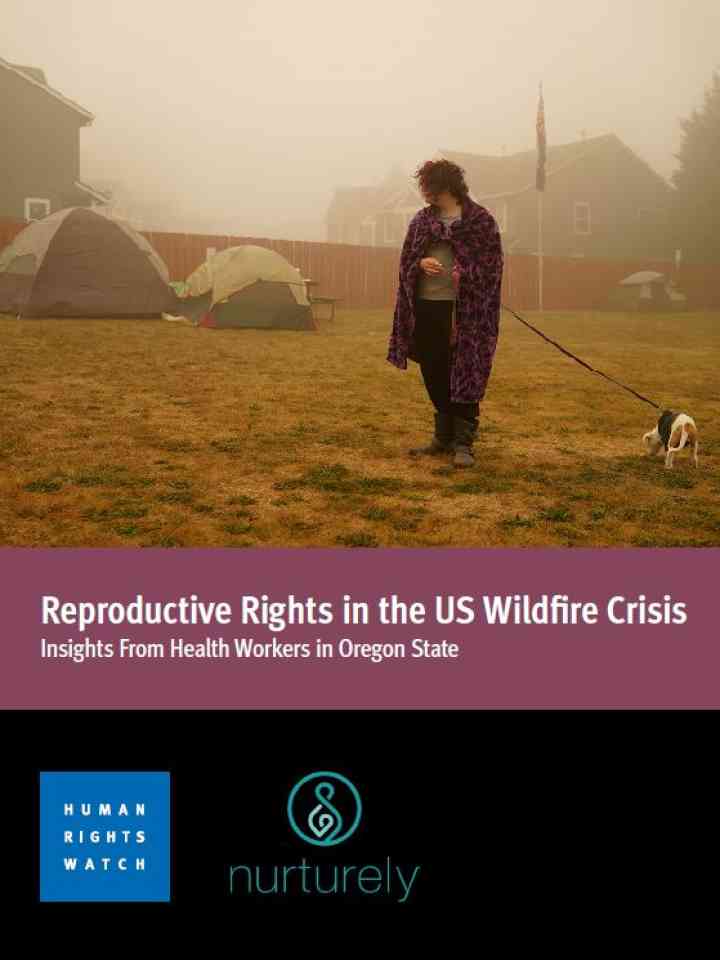Reproductive rights in the US wildfire crisis: Insights from health workers in Oregon State
This report documents some of the impacts of increasing wildfires in Oregon on sexual and reproductive health and rights, and how these impacts intersect with disadvantages or historical injustices and disparities. An international human rights organization, Human Rights Watch, and an Oregon-based US perinatal rights organization, Nurturely, produced this report based on more than 50 interviews with community-based birth workers like doulas and lactation consultants, midwives, doctors, social workers, community health workers, NGO workers, activists, and public health officials in Oregon, and with epidemiologists and climate experts from across the country both in the federal government and in academia.
The main findings include:
- Race, immigration status, poverty, houselessness, place of work, language ability, and mental health conditions are key factors that impact who has access to knowledge and resources to protect themselves from wildfire smoke while pregnant.
- Maternal mental health impacts of wildfire exposure are a significant concern. Interviewees discussed impacts from wildfires on the physical and mental health of their pregnant clients or patients.
- Advice for pregnant people regarding wildfire smoke can be hard to use for low-income communities, and the pregnant person has to know that wildfire might be a risk and that these resources are available to go and find them in the first place. Service providers working with pregnant women and other pregnant people had not been given training or information about the effects of wildfire smoke on pregnancy. Some found information online but said they still felt unsure or confused about what advice to share with pregnant patients or clients.
- Wildfires can be an obstacle to maternal health care. Providers described the effects of wildfire and smoke on communities as posing obstacles to maternal and newborn health, including by disrupting prenatal care or birth plans and removing the person's choice of where to give birth as well as harming the crucial early mother-baby and/or family bonding, including the ability to breastfeed.
- Wildfires have negative impacts for providers. Birth workers and other providers said they experienced health and other kinds of stressors on their own well-being in the midst and aftermath of the megafires of recent years. They endured both personal and professional stress. They had concerns as to whether they were providing the right advice to patients or clients.
Explore further
